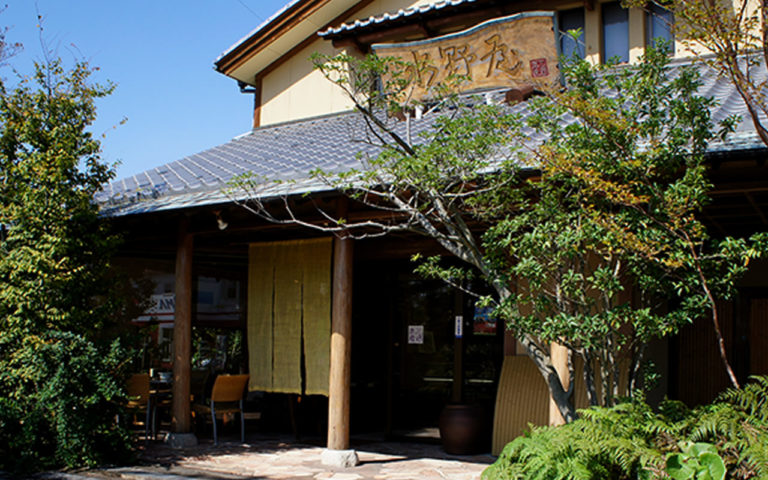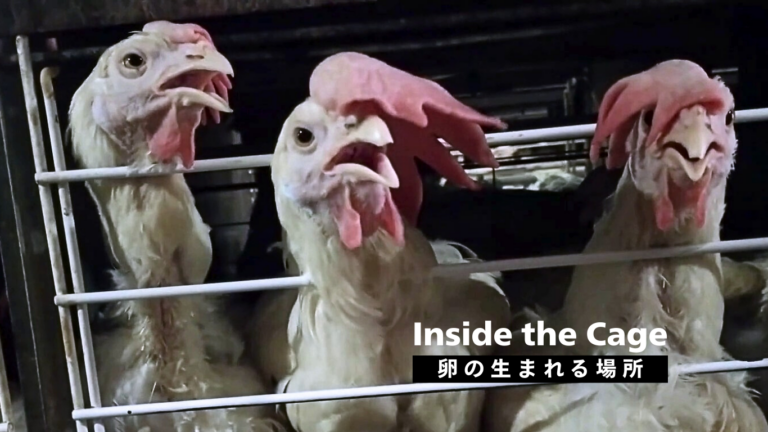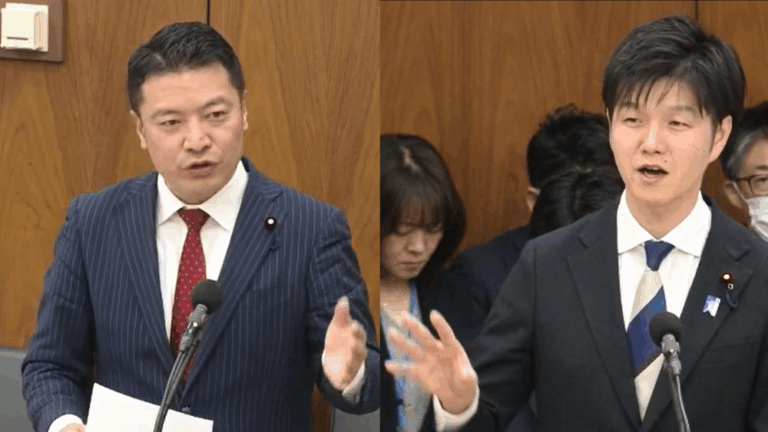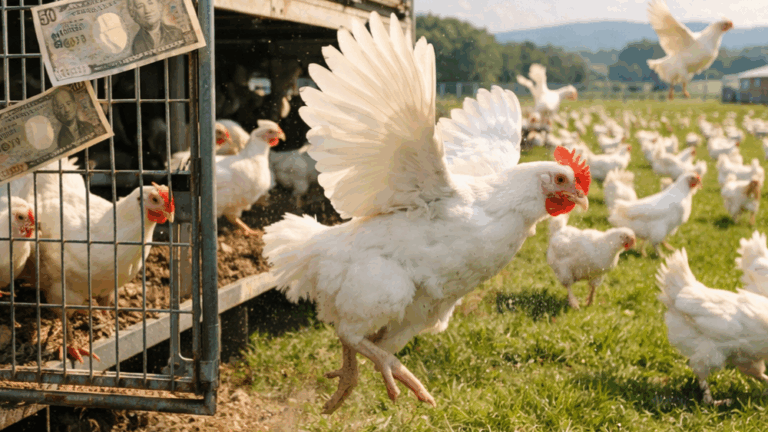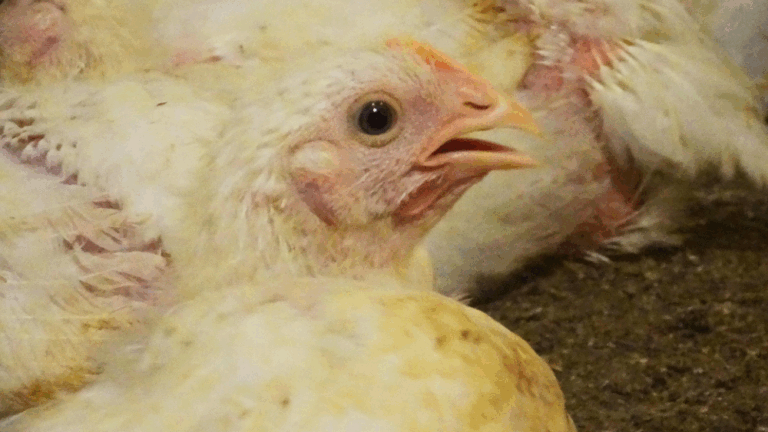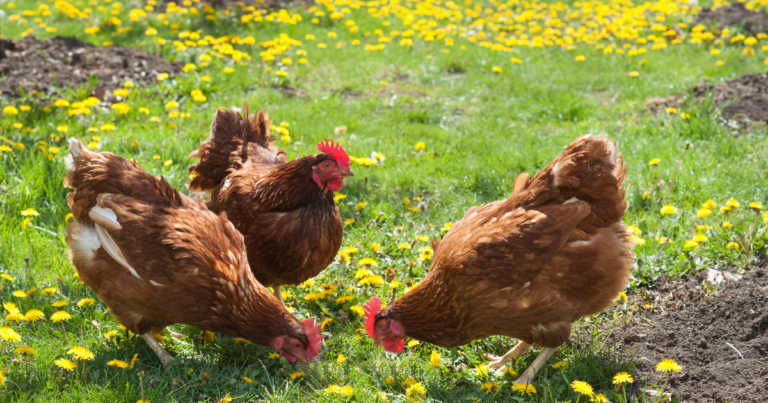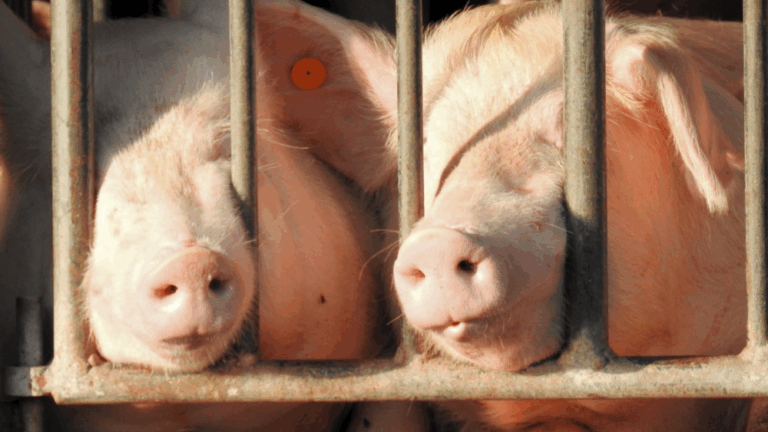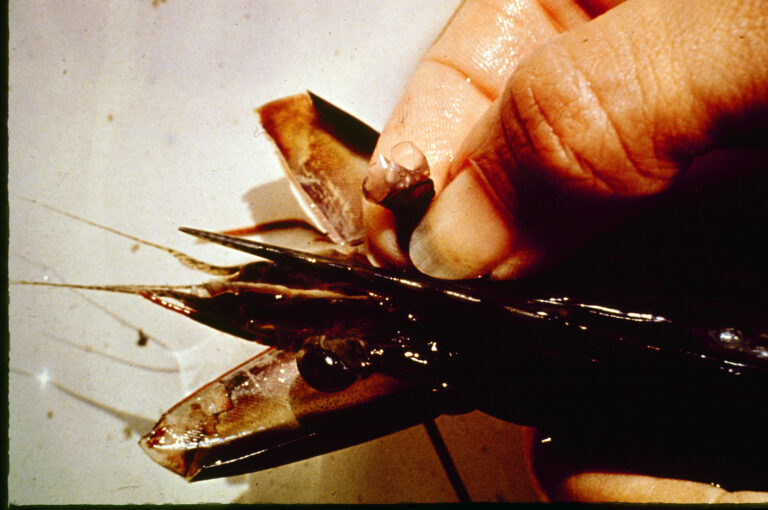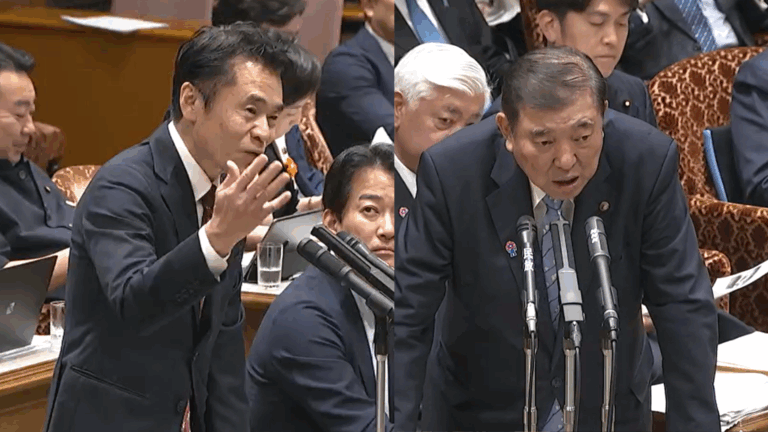Decision of a long-established Japanese confectionery company
Mizunoya, a long-established Japanese confectionery store that was founded in 1913 and operates three Japanese confectionery stores in Miyazaki Prefecture, has made a cage-free declaration. A new page of animal welfare has begun in the history of Mizunoya, which has been loved and inherited for over 100 years.
Mizunoya, which runs a Japanese confectionery store in Miyazaki, where there are many poultry farms, was originally eager to choose good eggs. By using eggs that enhance the taste of Mizunoya’s sweets without compromise, they have protected their flavors since the Taisho era. However, Mr. Yusuke Mizuno, the 3rd president who would like to ease people’s hearts with Japanese sweets, says,
“When I thought about the egg-laying hens, my mind was stirred,” he says.
“For Japanese confectionery that are kind to the body and make people happy, isn’t the suffering of the chickens not agreeable…?”
Mr. Mizuno, the confectioner and business owner who inherited the taste of Mizunoya, was actually trying to use cage-free eggs in the past. Unfortunately, the quality of cage-free eggs at the time did not match the quality of Mizunoya in terms of taste and safety.
Encounter with a large barn-raised egg farm that supports cage-free
However, through the Cage-Free / Egg-Smart campaign by the Animal Rights Center Japan, Mizunoya and ARCJ encountered each other. The people who helped us connect were ARCJ supporters. And we ended up introducing FUSION Co., Ltd., a large-scale cage-free egg farm with whom ARCJ had been exchanging information about eggs for some time.
FUSION Co., Ltd. operates a large-scale cage-free poultry house with the aviary system within Miyazaki Prefecture, where Mizunoya exists. The company mass-produces cage-free eggs in line with the idea of animal welfare, and the prices are stable. Moreover, not only are the prices stable, but also the environment where a reliable standard, even in terms of safety, can be easily maintained has been recognized by a long-established Japanese confectionery store with a history of 100 years.
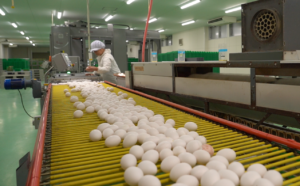
Mizunoya’s management philosophy
Still, for Mizuyona to change the eggs used in its main products to cage-free eggs, which are about three times the price of caged eggs, there was a big financial ambivalence.
“Will Mizunoya’s customers accept this change?”
… Actually, behind this brave decision was an extraordinary spirit devoted to confectionery that had been passed down by successive owners of Mizunoya founded in 1913. The history of the first Mizunoya founded in 1913, began with selling of hard candies by the first business owner who learned to make sweets in Nagasaki, a large city at the time. At that time, sweets were rare in Miyazaki, and the confectionery store that started as a candy store thrived, and the business was smooth sailing. However, when the war started and sugar became a controlled product, Mizunoya’s proud Japanese confectionery was forced to use an additive called “saccharin,” a sugar substitute. Then, the first president, who is the grandfather of the current president Yusuke, decided to simply drop Mizunoya’s signboard.
“Saccharin” at that time was a sweetener that was not delicious. Therefore, the first president, Mr. Mizunoya, who thought he couldn’t sell to customers unless it is a real confectionery, could not decide but to close the business. The father of the current president, who grew up as a successor of the Japanese confectionery store, was sent to work without taking over the store. At that time, there were two Japanese confectionery stores in Miyazaki prefecture, including Mizunoya, which were competing with each other, but with the closure of Mizunoya, another Japanese confectionery store that continued to sell saccharin Japanese confectionery made a lot of money. However, until real sugar became available, the opinion of Mizunoya’s first president, “we can’t sell unless it is real Japanese confectionery”, did not change.
The Japanese confectionery store Mizunoya that quietly sits in a rural city had such magnificent history. However, we believe that, because the management philosophy of “if it is not genuine, it cannot be sold” is the basis of 100 years of long-established management, this cage-free declaration was realized. This is the essence of the owner’s personality appealing to customers, and Mizunoya, who did not sell cheap confectionery even during the war when everyone was suffering, gained the trust and affection of the local community despite having closed down. After that, Mizunoya, which resumed business, grew into a stable company with three elegant confectionery stores in the prefecture.
Currently, Mizunoya’s main products that use eggs are castella, dorayaki, and boro, all traditional sweets that were introduced to the Kyushu region during the Edo period. Obviously, all cage-free eggs were used at the beginning. Since battery cages were an industrial livestock product that were introduced from the United States after the war, President Mizuno decided that caged eggs are not suitable as ingredients for traditional Japanese confectionery. Mizunoya’s founding principle of “selling only real Japanese confectionery” is being followed.
Cage-free declaration will enhance the future of the company
Mizunoya made the decision to change to cage-free eggs with understanding of the management risks. Mizunoya’s philosophy has been passed down to the current president’s young son and wife. But for businesses, investing in animal welfare for a rich diet 10 years from now is not a disadvantage. Mizunoya’s cage-free declaration will change the customers’ mindset, and the customers will become aware of animal welfare when selecting other products.
In addition, by selling Mizunoya’s cage-free products, other companies in the same industry will be conscious of Mizunoya’s strategy and will begin to seek methods of procuring cage-free eggs. At the moment there are unfortunately few companies that can meet the demand for large amounts of cage-free eggs like for confectionery, so the supply chain will be stimulated, creating opportunities for the cage-free egg industry to become vigorous. The courageous cage-free declaration of one company drives cage-free throughout the industry. And pioneers like Mizunoya will be able to take that tailwind and go even further.
To pass on a long-established Japanese confectionery company that has been operating for 100 years since 1913 to the next generation, what can the owner do now?
Mizunoya’s contribution to changing the history of battery cages through its core business gives it the potential and future power of animal welfare. In other words, the cage-free declaration is a declaration that the company will be at low risk. So it’s a big and solid advantage for the sustainability of the company itself, and it’s well worth the cost for the company.

Mizunoya since 1913, Saito Main Store
Miyazaki Prefecture, Saito, Nakazuma, 1-chome 12
TEL. 0120-098353
*Due to the homepage renewal in conjunction with the cage-free declaration, some of the products may have different raw material notation from the article.


